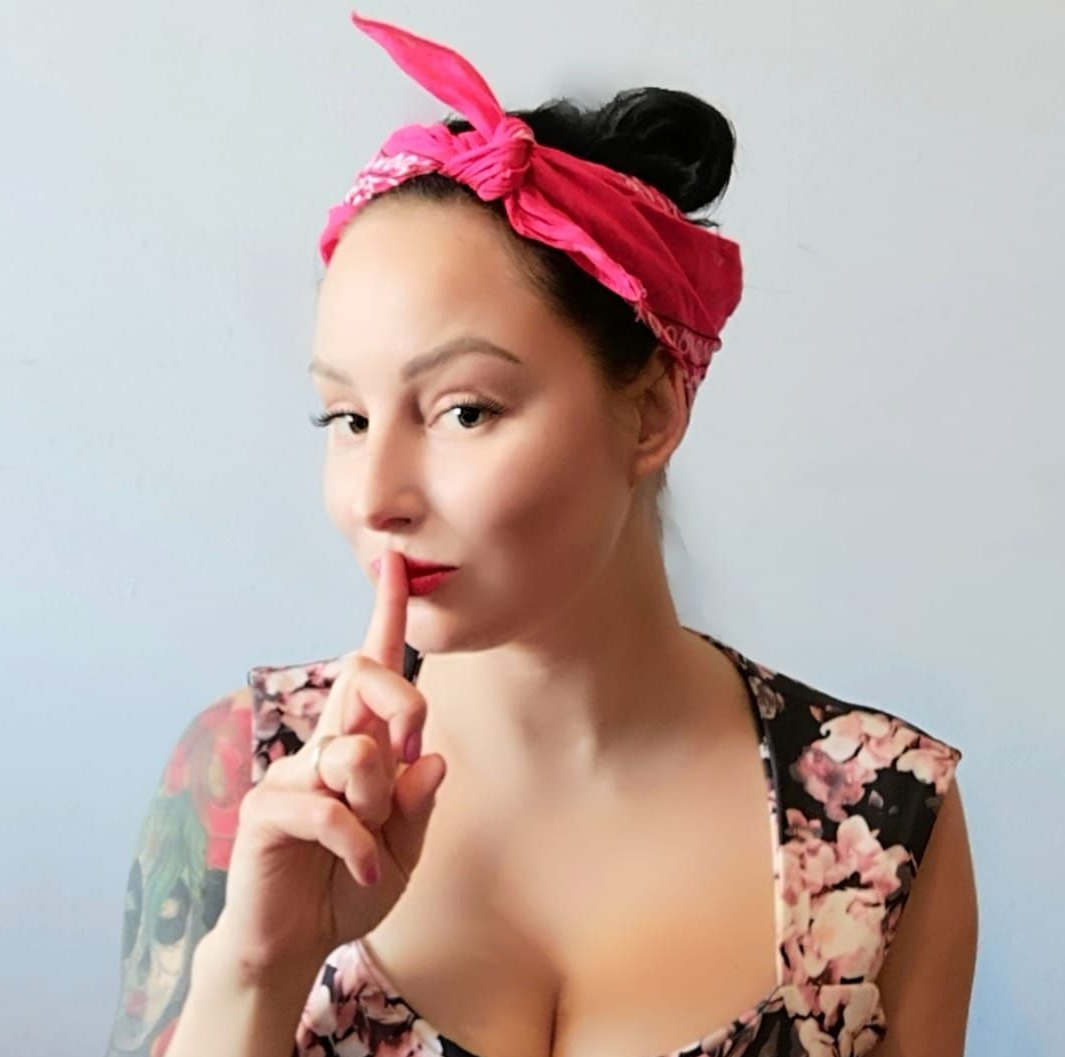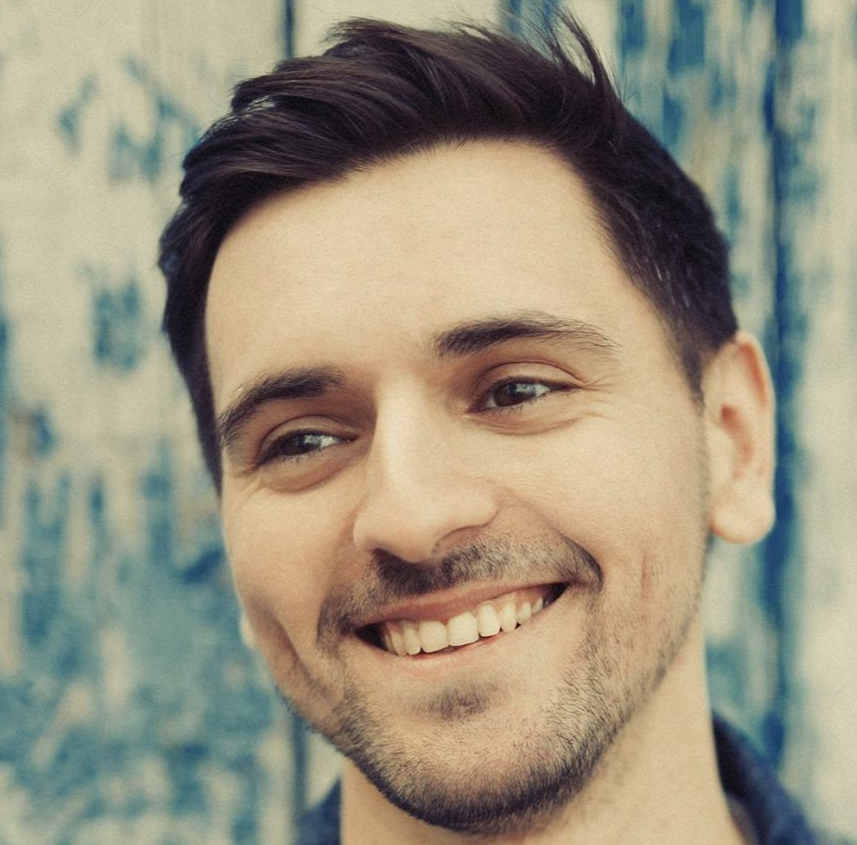Viachaslau and Shawn
Viachaslau was born in Belarus when homosexuality was still criminalized. Fully realized his sexual orientation at the age of 19, he co-founded and united several Belarusian LGBT movements, maintained a long-distance relationship with his boyfriend for 10 years, before marrying him "at Tiffany's." But for him the struggle continues.
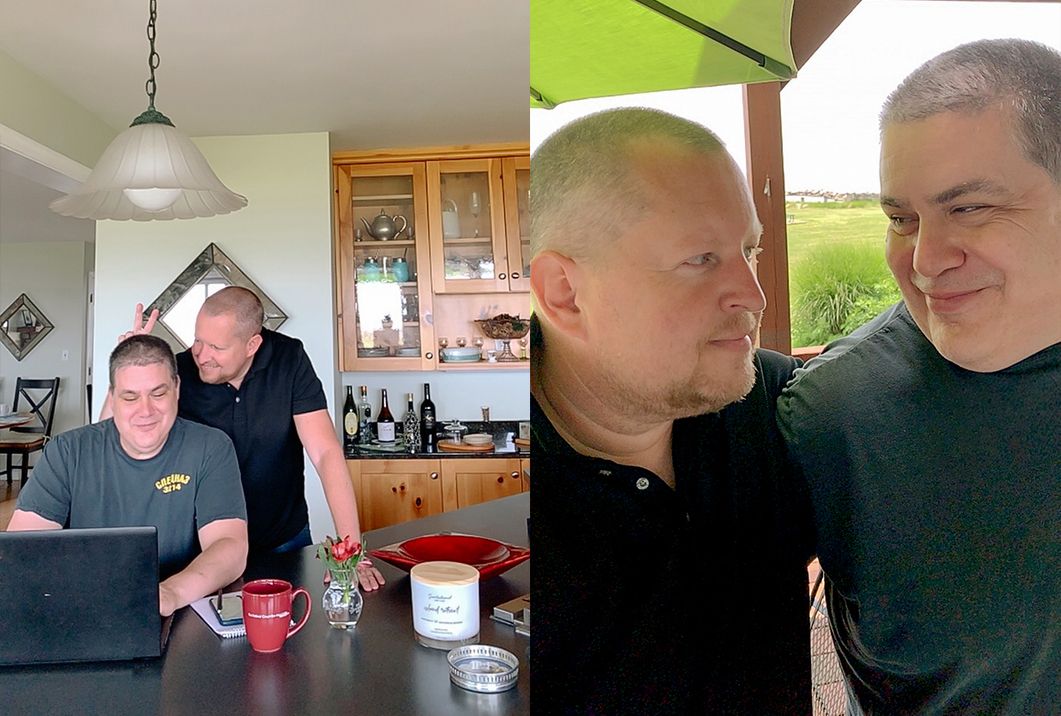
The Main Gay of Gomel
I was born and raised in Gomel, Belarus and lived there all my life before leaving for the United States in 2013. I first realized that I like boys when I was 6. For me, this discovery was the beginning of a very long internal struggle. I tried to date girls, but without success. For a long time I didn't want to admit that I was gay. I came to terms with it only at 19, and before that I just told to myself "No, it's not about me," "No, it's not me," "No, I like girls." But it didn't work.
When I finally realized I was gay, there was still an article in the Belarusian Criminal Code that criminalized homosexuality. There was no Internet then. I didn't know any gay gays. I did not know where to go, where to meet people like me. But when I admitted to myself that I was gay, I realized that I needed to accept it somehow. That first year, from 19 to 20, I spent searching for information and gay people. There was no Internet, but there was, for example, the newspaper "AIDS-Info.” Then the first Belarusian magazine on sexual matters "Meeting" began to publish. The first articles about gays appeared in there, and letters from homosexuals were been published. For me, it was a huge discovery and source of support.
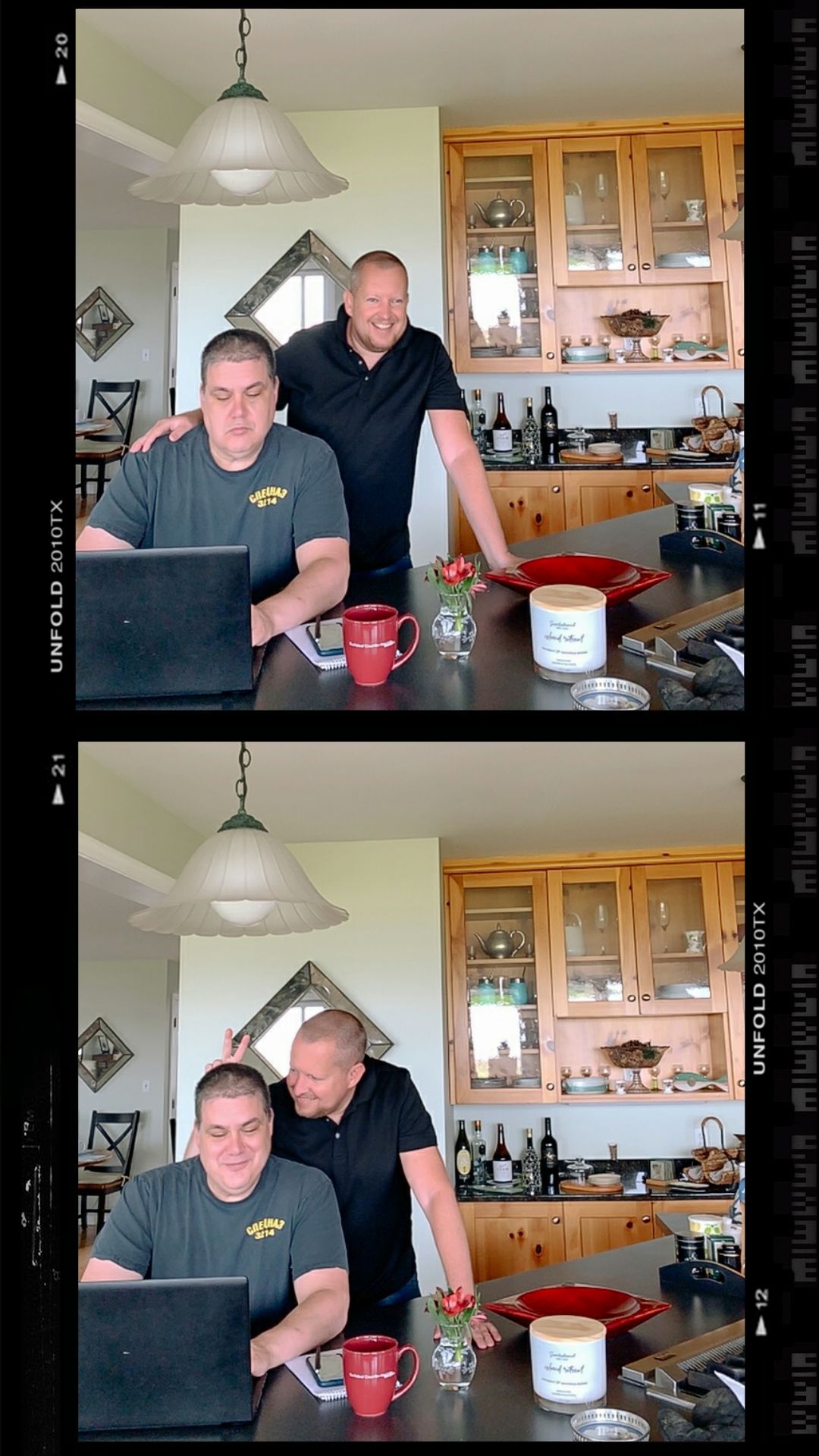
I didn't want to admit that I was gay.
My first coming-out happened when I met my first boyfriend. I was crazy in love and on this climb I decided to tell my close friends about my boyfriend so that they could also meet him and he could become a part of our gang, of our life. I brought him to this circle and he was received normally. Then I opened up to others, most often during periods when I was love.
LGBT activism came into my life in 1998 with Forum Lambda magazine, published by Edzik Tarletsky. We became friends and sometimes I wrote for the magazine. In April 1999, I went to Minsk specifically to join the newly formed Belarusian League for the Freedom of Sexual Minorities "Lambda" and to take part in the first-ever public action of Belarusian gays and lesbians in the very center of Minsk. Then there were the first prides, an exhibition of posters organized by me at the Gomel State University, first international conferences, first problems with law enforcement agencies... I am proud to say that at one time I was a member of almost all Belarusian LGBT organizations. I have been also involved in HIV prevention work for many years. I initiated and co-founded the Belarusian LGBT Network, which in a short time managed to do a lot to consolidate the movement. For a long time, I was the only one who published abroad, talking about the problems of Belarusian LGBT people. At the same time, I never lost touch with my hometown, where I am still called "the Main Gay of Gomel".
Shawn
I met my husband Shawn 17 years ago. At the time, I was the head of the Belarusian branch of Amnesty International, and Shawn worked at one of the regional offices in the U.S. We first met at an international conference in Mexico, which brought together Amnesty’s representatives from around the world. Sure, there were a lot of people, but Shawn noticed me in the crowd the very first night. Next day he invited me to discuss one of the human rights resolutions. At the time, the Belarusian branch did not have the right to vote, but Shawn said to me: "You can always talk to representatives of other branches and persuade them to support our resolution." I had no idea that he wanted to invite me for a date. When it finally came to me, our human rights discussion turned into a love affair.
We had to leave in a few days. I did not think that something could come out of our relationship - I regarded it almost as a holiday romance. But Shawn, escorting me to the airport, said, "There's a chance out of a thousand that we'll see each other again - and I'd love to." A month and a half later he arrived in Minsk. Thus began our ten-year long-distance relationship. We saw each other about two or three times a year. I came to visit Shawn more often, sometimes I could stay for a few months at a time. Shawn also visited me Belarus - six or seven times, probably. But these were short visits.
A long-distance relationship is not easy to manage. There was always a risk of not being granted a visa, so I tried to link my travel to some human rights event to indicate it in the purpose for the visa. In addition, it was expensive: a multiple-entry visa costed about $160 and was issued to Belarusians for only one year. Although Shawn covered most of the expenses, I paid for the visa and the flights myself.
Among other things we share with Shawn is similar political views - we are both born activists. When we met at Amnesty’s conference, Shawn was the director of one of Amnesty International USA's regional offices.
Then he worked for GLSEN, a leading American LGBTQ education network, where he served as a Public Policy Director. The organization promotes legislation at the state and federal levels to protect LGBTQ people in educational institutions. He worked there for 9 years. In general, Americans are very mobile - they can easily take off and move to another state if they find a good job. Shawn, of course, did not consider options that went beyond Washington, D.C. or at least New York, but he felt that he was already spending too much time at one place.
And he switched to a lower salary at Human Rights First; the financial side that was never a defining moment in Shawn's career. This job opened new horizons for him - it had an international perspective. If before, Shawn dealt with internal American issues, now he traveled the world, met with activists on the ground, brought them to the States, and sought change for the global LGBT community. He actually built the LGBT HRF program from scratch, which did not exist before him.
But in life it is rare that everything always goes smoothly. In 2018, HRF had serious financial problems, many programs had to be closed, including Shawn’s. For the first time in his life, Shawn became unemployed. For a while he could not find a job that was a good match. It was a very difficult period for him, but I had a steady job then, so we held through. Eventually, Shawn got his dream job, becoming the director of the LGBTQ+ Equality Caucus in the U.S. Congress. Now he is directly involved in the process of major positive changes for the LGBT community.
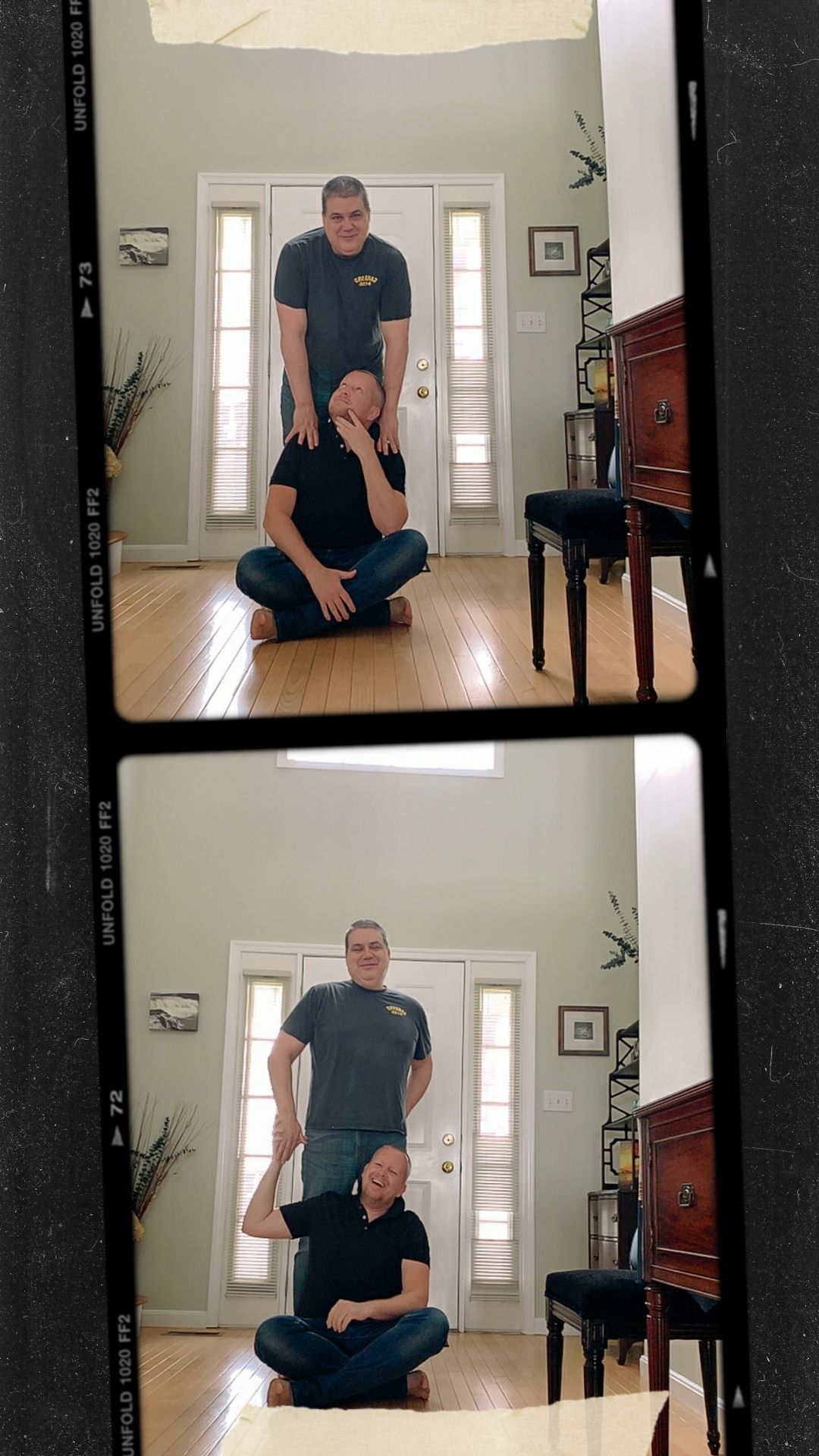
Marriage
In Washington, D.C., same-sex marriages became legal in 2009, but we got married only in 2013. If we decided to register immediately, it would hurt us, because it would be recognized only in the District of Columbia, but not in all the United States. Immigration matters are all resolved at the federal level, so I would not have the right to apply for a green card as the husband of an American citizen. If I indicated my marital status in the visa application form, the embassy could consider it as a desire to stay in the United States and deny the visa. The main condition for obtaining an American visa is to prove that you will certainly return home. So we looked for other ways.
One option was to win a scholarship to study in the United States. I tried and succeeded - I lived with Shawn for two years while getting a master's degree in public administration at American University. Then I returned to Belarus, as it was a prerequisite for a scholarship.
In 2013, same-sex marriages began to be recognized at the federal level, but not through universal legalization. Until 2013, there was a Defense of Marriage Act in the United States - it considered marriage solely as a union between a man and a woman. But it was struck down by the U.S. Supreme Court in June 2013. Marriage was recognized as a union not only between a man and a woman, but also between people of the same sex. Instead of just in states where same-sex marriage had already been legalized, it became recognized at the federal level. Most importantly, same-sex couples received the same immigration benefits as heterosexuals. One week after the Act was repealed, we decided to register our marriage.
After the Supreme Court ruled, thousands of couples in the United States decided to get married. And if before we wanted to have a wedding in the National Cathedral - the main church of the United States, now the line there was for a year ahead. There was also a long queue in the City Hall. We couldn't wait a whole year: I had to register my marriage and apply for a green card before my visa expired.
However, in the United States, marriage is not limited to church, court, or City Hall. There are marriage officiants - these are persons who have a special license that allow them to marry people. Anyone can get such a license, and this is a common phenomenon. I decided to find a marriage officiant on the internet and wrote to a woman named Tiffany. She asked, "When do you wanna get married?" - "We can do it tomorrow". - "Okay, let it be the day after tomorrow." She asked for about $200 to register us.
We invited literally five people to our wedding ceremony. I have a good friend, a Belarusian, who was born in America. Shawn invited his friends from college: a husband and wife with two children who, fortunately, were driving through D.C. on their way to Disneyland in Florida. The ceremony took place in Tiffany's flower-decorated office. We were in suits - according to the solemn occasion. Friends gave short speeches, children delivered wedding rings. It all took twenty minutes. Afterwards we spent some more time at Tiffany's drinking champagne and greeting each other. Then we went to Washington's oldest gay restaurant, which has been operating since the late 1940s. And two months later we held a big wedding party.
Shawn and I had disagreements about the celebration. He wanted a big beautiful wedding where his whole family would be present. It seemed impractical to me, I rather dreamed of a romantic trip to some Latin American country, a small party for D.C. friends upon our return. And that's all. In addition, it was hard for me to realize that my family would not be able to come: obtaining a visa takes at least two months, and flights cost a lot of money. We could have done this party later, but Shawn didn't want to procrastinate too long. In the end, we decided to have a big wedding party in the United States, and when we next in Belarus to have a small party for relatives and friends.
My friend, who was at our wedding ceremony, has a cottage on the coast - the house is right next to the water. There is a magnificent view of the Chesapeake Bay. She offered to have the wedding party there. The whole party cost about $20,000. We rented a large tent: put it by the water, laid the floor for dancing and set the tables. Maryland is known for its blue crabs - it was just the right season, so the signature dish was crab cakes.
My friend is the daughter of two famous researchers of the Belarusian diaspora in America, Vitaut and Zora Kipel. She has piles of Belarusian stuff: embroidered towels, traditional costumes and rare antiques. We decided to add Belarusianness to our wedding - decorated the tent with towels and added Slavic rituals: when we entered, we were greeted with bread, salt and glasses of vodka. What other features were in the design? We love to travel, so each table was decorated in the style of one of the cities we visited together. One of the most emotional moments was the first dance. At first Shawn danced with his mother, then I cut in to finish the dance with my mother-in-law.
Shawn is from a Catholic family: his mother is Italian and his father is Irish. When I came visit Shawn's family, he first introduced me as a friend. His mother knew about his orientation, but this topic was not openly discussed. And Shawn never talked to his Dad about it at all - it turned out he had to guess. But knowing and guessing are different things. And when we invited them to the wedding party, Dad was a little shocked and I understood him perfectly. Shawn's father is from a small town, from a more traditional family. Most likely, his first thought was "how to explain it to relatives and neighbors?"
An interesting story also came out with my family. I never told my parents directly that I was gay. There are three of us in the family: me, my sister and my younger brother. My sister was the first person I came out to; it happened more than twenty years ago. And we always protected my mother from bad news. I also did not talk to my brother about my orientation for a long time. Our relationship was different because he is eight years younger than me. Moreover, we lived without a father, and I decided not to give him such a model of behavior. But it turned out that my brother knew about me from childhood, and he once brought me out for a conversation.
I only introduced Shawn to my mother - my parents were divorced at the time. All the years of our relationship my mother knew that we were in touch, that I regularly visited Shawn and lived with him when I was studying in the States. So I was 100% sure she understood everything. But one day my mother asked if Shawn had a girlfriend and if he was going to get married at all. I was shocked - we were together for six or seven years at that time. I realized that I needed to come-out, but was indecisive.
When Shawn and I decided to get married, my mother still hadn't heard of our relationship from me personally. I consulted with my sister on how best to talk about preparations for the wedding, but she was against it. She was afraid that my mother would be very worried. However, my younger brother's wife accidentally "reported" me: she called my mother and congratulated her on our wedding. For a week, my mother was digesting the information, and then called my brother and asked, "What did your wife congratulate me with?" My brother went to talk to her. It turned out that my brother made a coming-out for me - I was in the States at the time.
No one in my family was able to come to the wedding celebration. So I asked them to send video greetings, and we showed the videos on the big screen in the tent. When I watched this video for the first time, I thought my brother was shooting it, and then I heard my mother's voice-over. The camera turns around and I see my mom with a glass of wine congratulating us on the wedding. I burst into tears, of course.
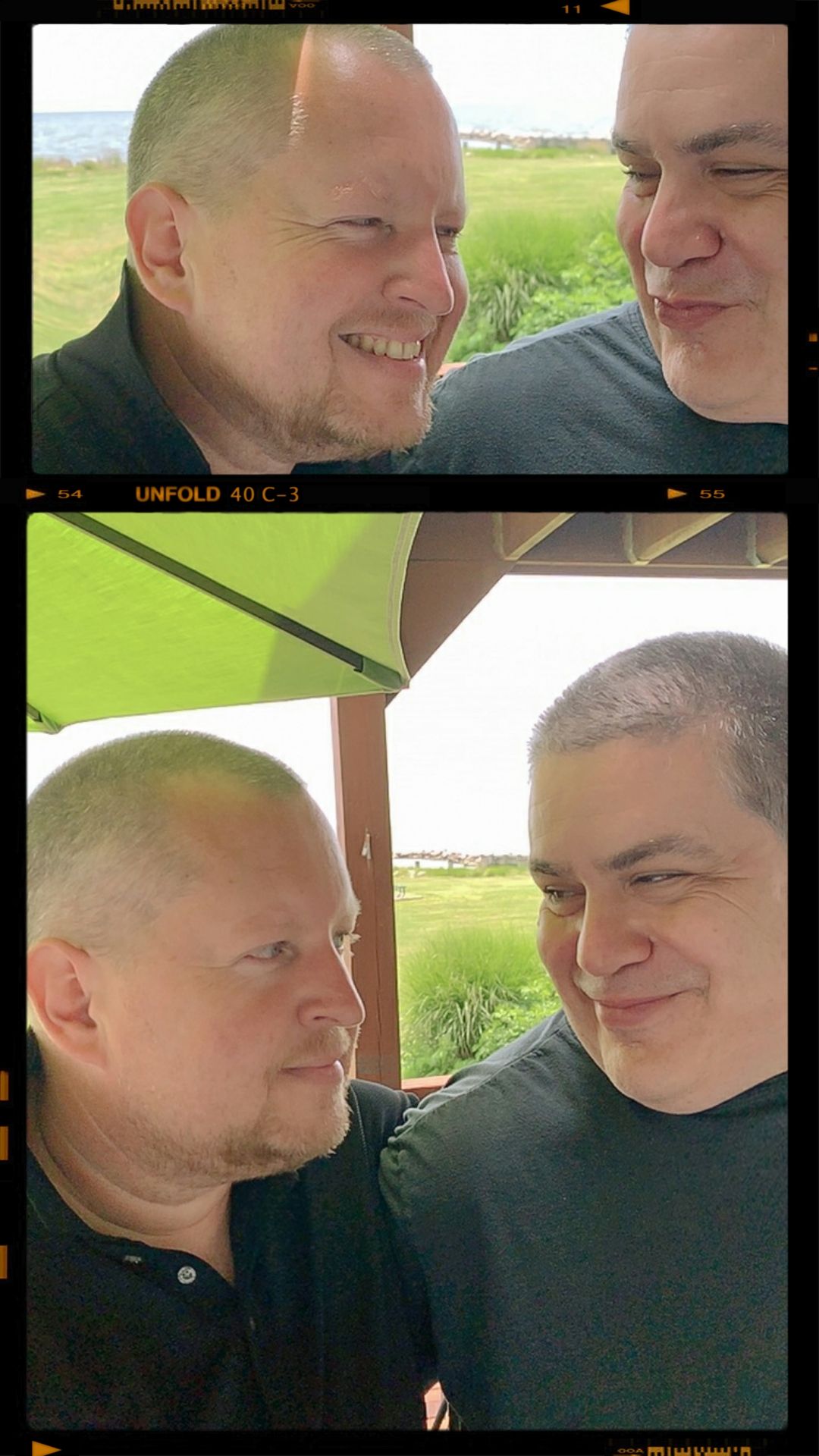
Outing for Belarus
At first, I didn't want to advertise our wedding widely. But the publications appeared in many media outlets, thanks to them everyone in Gomel learned about it: my distant relatives, former employees - basically, everyone already knows. I believe that even though most people around me know about my sexual orientation, it is still important to talk about it, including in public. It is important to be visible. It helps form in the minds of others a picture of LGBT people as ordinary people who can be neighbors or co-workers who are busy with the same daily routines. We are not scary or dangerous. It is important to show people that sexual orientation is not only and not so much about sex. That is why it is very important that more people come out. For many who have not personally met with LGBT people (of course, they have met them, they simply do not know about it), this is something unfamiliar and incomprehensible. I want to dispel these stereotypes.
I often visit Belarus and will continue to come back. I try to maintain relationships with Belarusian human rights activists and with the LGBT community. Washington, D.C. is a very gay-friendly place. However, there is also a problem of violence related to the sexual orientation and gender identity of victims. There is still a very high rate of suicide among adolescents in this regard. Therefore, the need to come out publicly remains. We are often afraid; we think that it is better to sit quietly and no one will touch us. But even if we sit quietly, we are still afraid that something will happen to us or someone will find out. So I think it's better to come out.
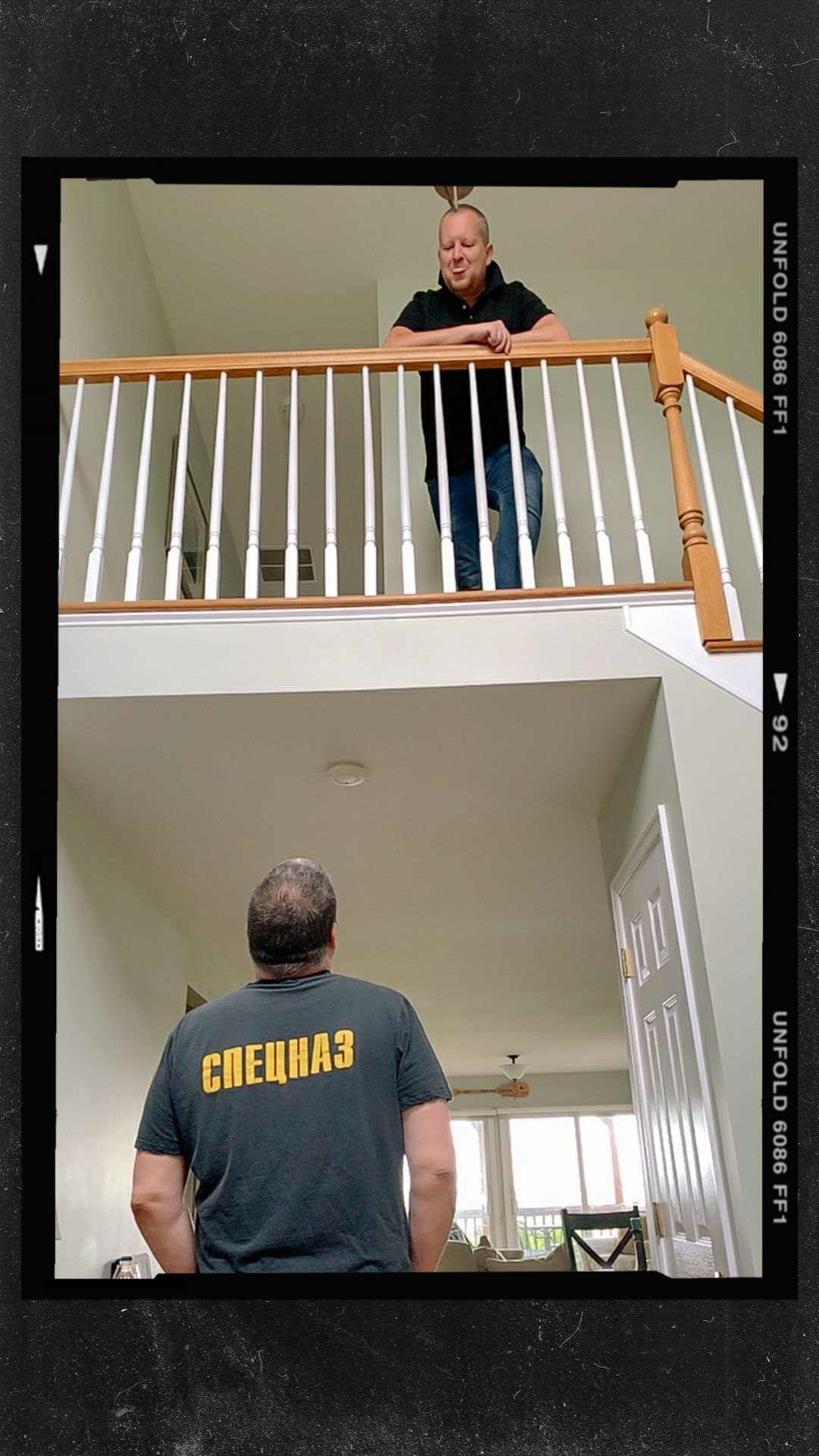
Text by:
Alina Shubska
Photo by:
Arthur Aleksanian
We seek to assist Ukrainian LGBTQ + individuals living in the US and Canada to integrate, adapt, and productively contribute to American society.
Anna Konde
Балтімор, США
Pavlo and Brian
Los Angeles, CA
Aleksandr Smirnov
New York
Tanya Mazur
Washington, D.C.
Svitlana Zemlyana
Novi Sanzhary, Ukraine
Dmytro and Ronaldo
New York, USA
Dmytro and Phillip
New York, USA
Viktor “Frenchman” Pylypenko
Kyev, Ukraine
Dmytro and Rob
New York, USA
Lyosha Gorshkov
Pittsburgh, USA
Damien and Dmytro
Chicago, USA
Roman and Anton
Атланта, США
Bogdan Globa
Washington, D.C.
